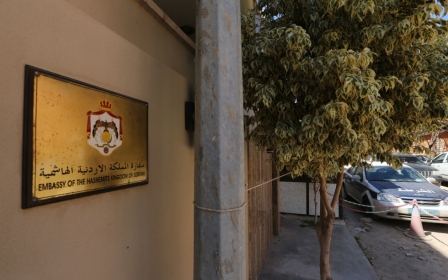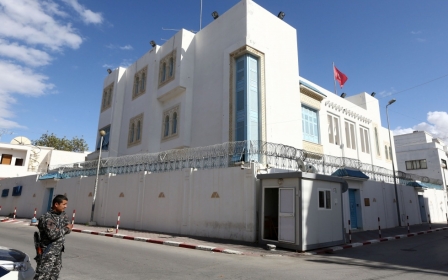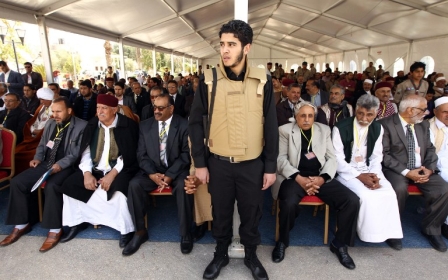Benghazi suspect ordered to be held without bail in the US

A US federal judge on Wednesday ordered that a Libyan suspected of being behind the deadly 2012 attack on the US mission in Benghazi be held without bail until his trial on terror-related charges is heard.
Judge Deborah Robinson sided with federal prosecutors, who argued that Ahmed Abu Khatallah posed a "serious danger to others" and was a clear flight risk because he has no ties to the United States.
Assistant US Attorney Michael DiLorenzo also emphasized that the "seriousness of the offense" allegedly committed by the Libyan national necessitated keeping him behind bars.
Abu Khatallah has been charged with conspiracy to provide material support and resources to terrorists resulting in the death of US ambassador Chris Stevens and three other Americans.
He was captured by US commandos in a controversial covert mission last month in Libya, which the government there say they were not aware of and have condemned as a “brazen violation of Libyan sovereignty”.
The suspect, who is in his 40s, has pleaded not guilty. He could face life in prison if convicted and the government has said he will likely face other charges, some of which could be punishable by death.
In court documents filed late Tuesday, prosecutors said that "the evidence against the defendant is strong" and that he had given "voluntary statements corroborating key facts."
"The defendant's participation in the attack was motivated by his extremist ideology," prosecutors said in the filing.
"The defendant has repeatedly expressed his hatred of Americans and his efforts to target American and Western interests."
Prosecutors also contend that Abu Khatallah continued "to communicate his plans for additional deadly attacks to other extremists and encourage them to carry out those plans."
Abu Khatallah's lawyer Michelle Peterson did not oppose her client's continued detention, but said the government's case against him was lacking.
It is "not even obvious that he's directly involved in the incident," Peterson told the court.
She challenged the government's contention that he was dangerous, saying it was based on the fact that he was carrying a loaded handgun when he was captured.
Peterson noted that Abu Khatallah had spent decades fighting the regime of late Libyan leader Muammar Gaddafi, and that being armed when living near Benghazi was not unusual.
The 2012 attack in Benghazi has become highly a politicised event in American politics, with the Republican Party having accused the government of giving misleading information to the public.
The Republicans have been accused themselves of using the incident to curry favour with voters and House Speaker John Boehner even faced questions about whether his party were using it to fundraise ahead of elections in 2016.
The House of Representatives, which has already conducted eight reports into the attacks, recently voted to setup a select committee to investigate the incident, which has also been the subject of two US senate inquiries.
A new hearing in the case of Abu Khatallah is scheduled for 8 July.
New MEE newsletter: Jerusalem Dispatch
Sign up to get the latest insights and analysis on Israel-Palestine, alongside Turkey Unpacked and other MEE newsletters
Middle East Eye delivers independent and unrivalled coverage and analysis of the Middle East, North Africa and beyond. To learn more about republishing this content and the associated fees, please fill out this form. More about MEE can be found here.




